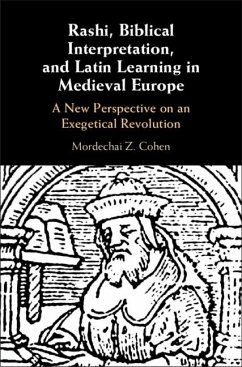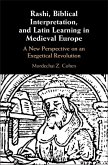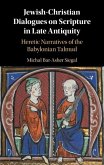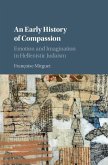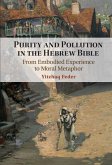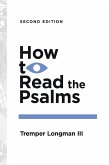In this volume, Mordechai Z. Cohen explores the interpretive methods of Rashi of Troyes (1040-1105), the most influential Jewish Bible commentator of all time. By elucidating the 'plain sense' (peshat) of Scripture, together with critically selected midrashic interpretations, Rashi created an approach that was revolutionary in the talmudically-oriented Ashkenazic milieu. Cohen contextualizes Rashi's commentaries by examining influences from other centers of Jewish learning in Muslim Spain and Byzantine lands. He also opens new scholarly paths by comparing Rashi's methods with trends in Latin learning reflected in the Psalms commentary of his older contemporary, Saint Bruno the Carthusian (1030-1101). Drawing upon the Latin tradition of enarratio poetarum ('interpreting the poets'), Bruno applied a grammatical interpretive method and incorporated patristic commentary selectively, a parallel that Cohen uses to illuminate Rashi's exegetical values. Cohen thereby brings to light the novel literary conceptions manifested by Rashi and his key students, Josef Qara and Rashbam.
Dieser Download kann aus rechtlichen Gründen nur mit Rechnungsadresse in A, B, BG, CY, CZ, D, DK, EW, E, FIN, F, GR, HR, H, IRL, I, LT, L, LR, M, NL, PL, P, R, S, SLO, SK ausgeliefert werden.

